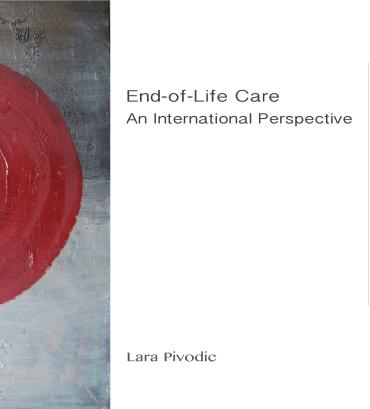Author: Lara Pivodic
Date: 26-11-2015
Promotor: Prof. dr. Luc Deliens
Co-Promotors: Prof. dr. Lieve Van den Block and Prof. dr. Koen Pardon
SUMMARY OF THE DISSERTATION
Background
The number of people who are dying from serious chronic diseases is rising in many countries across the world. These people typically experience a slow but steady progression of disease characterised by multiple and complex physical, psychosocial, and spiritual problems for which they require continuous care until death. The delivery of high-quality end-of-life care is an important challenge for public health due to the large number of people who need it and its impact on health care costs.
Methods
For this dissertation, Lara Pivodic carried out cross-national and population-based analyses to study the provision of end-of-life care by different care providers, the locations in which people receive end-of-life care, and the locations in which they die. The analyses are based on data obtained through epidemiological surveillance networks in four countries, a retrospective survey of bereaved relatives in the United Kingdom, and an analysis of death certificates in 14 countries.
Results
This dissertation gives insight into the involvement of general practitioners and specialist palliative care teams in the care people receive in the last three months of life, overburden in family carers, hospitalisations and other transitions between care settings in the last three months of life, and the place of death of people in potential need of palliative care.
Conclusions
The findings of this dissertation provide an important population-based evidence base for the formulation of national health policies to ensure an appropriate provision of highquality end-of-life care

